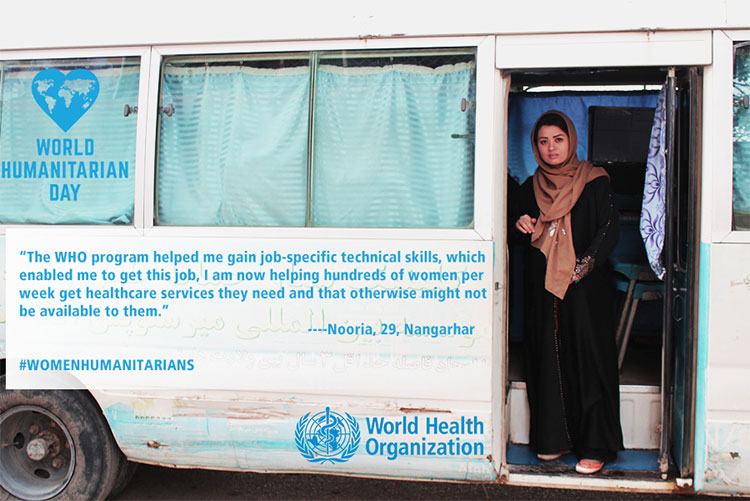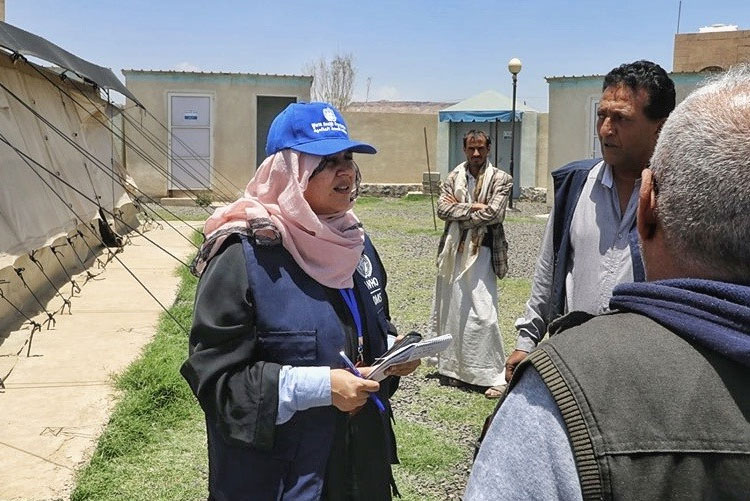Cairo, 19 August 2019 – On this year’s World Humanitarian Day, WHO’s Regional Office for the Eastern Mediterranean recognizes the contribution of women humanitarians working on the front line in emergencies.
“Particularly in our Region, which is severely affected by emergencies, it is critical that women’s role and contribution in emergencies is recognized,” said Dr Ahmed Al Mandhari, WHO Regional Director for the Eastern Mediterranean. “With their unique perspectives, skills, knowledge and resilience, women provide essential life-saving services and bring health care closer to our communities. In the occupied Palestinian territory, for example, I learned of a woman from the West Bank who took first aid training from a WHO-supported mobile team to ensure that immediate assistance is available in her community. She is now able to provide non-prescription medication to reduce fever and the pain of people in her community.”
Despite being active in every aspect of humanitarian response – from conducting surgical procedures in health facilities to delivering health services in the community – women still face a variety of obstacles. This includes insecurity while working in volatile areas, attacks on health care, sexism, discrimination and sexual harassment.
On this World Humanitarian Day, WHO in the Eastern Mediterranean Region reiterates its commitment to women humanitarians and calls on its Member States to promote equal opportunities and rights for women in health care settings, to ensure that health workers are protected and can provide health care in a safe and protected environment so that patients have access to health care when they need it most.
Related links

#womenhumanitarians: Celebrating World Humanitarian Day in Afghanistan

#womenhumanitarians: celebrating World Humanitarian Day in Yemen
Afghan women eradicating polio#womenhumanitarians
On the frontlines of polio eradication, women bring a little extra


